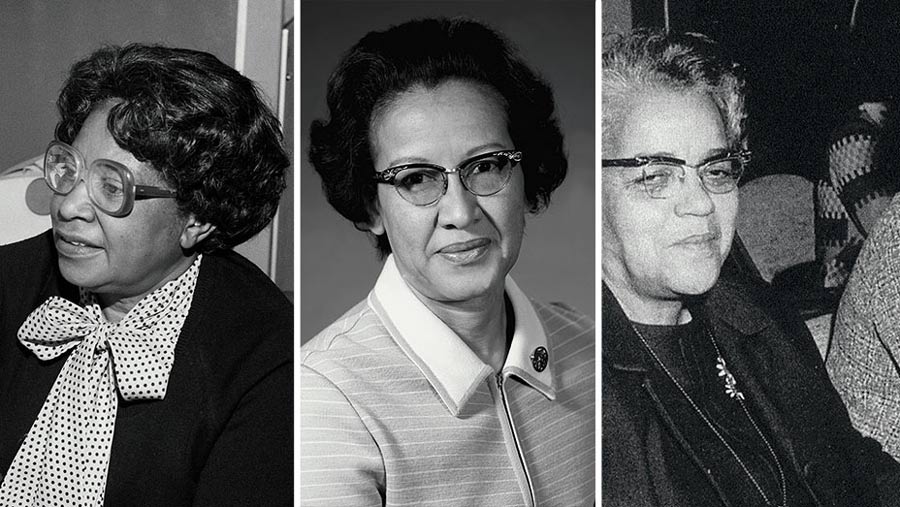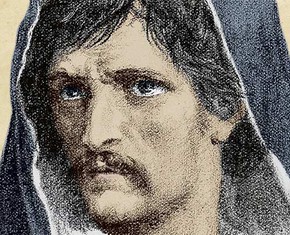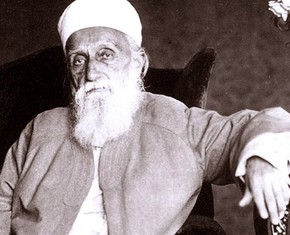The views expressed in our content reflect individual perspectives and do not represent the authoritative views of the Baha'i Faith.
History fascinates me, especially when new facts come to light that make me say, “Wow, I never knew. How cool is that?”
Most of us know the major facts and figures of history, but it’s most interesting and gratifying when people who truly made a difference finally receive their long-overdue recognition. In fact, one example of that principle—the book and the film Hidden Figures—tells the remarkable and previously unknown story of three African-American women and their profound impact on the U.S. space program.

(From left to right) Katherine Johnson, Dorothy Vaughan and Mary Jackson
All three women served as mathematicians at NASA during the turbulent 1960s, a period of time known for the Cold War, the early struggle for civil rights, and the space race. Katherine Johnson, Dorothy Vaughan and Mary Jackson contributed to working out the calculations for the trajectories of various space flights, including the Apollo moon missions. These three remarkable scientists calculated the launch windows, the trajectories and the emergency back-up return paths for many of the pioneering NASA missions—calculations critical to the success of those early missions.
My favorite quote about their work is one from now-90-year-old Katherine Johnson, who referred to herself as a “computer” when “computers wore skirts.”
Around the same time we learned about these three brilliant trailblazers, I came across another. The Jack Daniels distillery, celebrating its 150th anniversary, has finally embraced the fact that their best-selling product was developed by a slave, Nearis Green.
With the abundance of press coverage right now on the anger of the Black community and their conflicts with police, it becomes easier for some people to stereotype an entire race. Hopefully a few of those people may read this essay, and realize that in every race, religion, nationality and culture there are radicals, there are average, everyman-types, and there are those who shine their light on others. If we focus on the good qualities and the achievements of the best of any group of people, we can use that knowledge to counter bigotry, racism and prejudice.
So it should be obvious, especially now that Black History Month has arrived, that many African American individuals have made significant contributions to the advancement of civilization. You probably know the names of the most famous African-Americans—but you may not know many, many others.
Black people definitely benefitted the literary world: Beyond great black authors like Zora Neale Hurston and Richard Wright, John Love invented the pencil sharpener and the fountain pen was the brainchild of William Purvis. Lee Burridge brought us the typewriter and W. A. Lovett the printing press.
In the sciences, Charles Drew developed a process to preserve and store blood; he also started the world’s first blood bank, and the world’s first open-heart surgery was performed by Dr. Daniel Hale Williams.
For the home, the ironing board came from Sarah Boone, the refrigerator from John Standard, the air conditioner from Fredrick Jones, and Alice Parker gave us the heating furnace.
As to transportation, Richard Spikes invented the automatic gear shift, Joseph Gammel the supercharger system for internal combustion engines, and the traffic light came from Garret A. Morgan.
When the contributions of any group of people, whether they be classified by religion, race, nationality or gender, are ignored and go unrecognized, our history is incomplete and we all suffer for it. The Baha’i writings warn us that:
The theories and policies, so unsound, so pernicious, which deify the state and exalt the nation above mankind, which seek to subordinate the sister races of the world to one single race, which discriminate between the black and the white, and which tolerate the dominance of one privileged class over all others — these are the dark, the false, and crooked doctrines for which any man or people who believes in them, or acts upon them, must, sooner or later, incur the wrath and chastisement of God. – Shoghi Effendi, The Promised Day is Come, pp. 113-114.
We have made progress in this area, but recent events could work towards upending that progress. If you would like to see us sustain our progress toward racial amity, do some research and find out more about the tremendous contributions Africans and African Americans have made to the modern world.
You May Also Like
Comments

















If all people are equal, then if there is black history month , then there should be red, yellow, brown, and white, or may be we could also have blue eye month green eye brow eye where will it all stop and just be people of one race and one earth.
There are great people of all races, and should be looked on for what they ...did as people of one world and one race.
I feel that as long as we keep putting people into different brackets we are pulling apart instead on uniting.
Love to All
Hilton & Azamat.